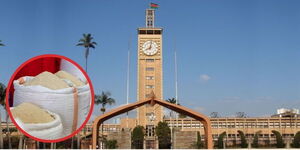The Electricity Sector Association of Kenya (ESAK) and the Association for Electric Mobility and Development in Africa (AEMDA) urged the government to reduce taxes imposed on vehicles to enable Kenyans to purchase more electric vehicles.
ESAK Managing Director George Aluru stated that the country would benefit from the move noting that it would encourage the demand and adoption of E- Mobility.
Additionally, he stated that a reduction in the tax would lead to a reduction in the amount of money paid out while purchasing fuel.
“There is an awareness that E-Mobility can really help us in terms of managing our supply and demand situation if we can shift a lot of these electric buses, vehicles, and motorbikes to the night time.
“They can charge at night when we have a low demand for electricity and that will help us manage the load profile,” Aluru explained.
Moreover, Aluru noted that Kenyans would benefit from the environmental impact that the cars will have on the country as they do not emit a lot of toxic gases into the environment.
Affirming the reduction of import duty, the Managing Director for (AEMDA) Warren Ondaje stated that it was important for the Kenyan government to incentivise the purchase of electric cars to encourage the demand and adoption of the vehicles.
Ondaje stated that it would also be a step forward for the country towards the realisation of its dream of having more electric vehicles on the roads.
“Import duty stands at 25 percent, VAT stands at 16 percent. There is even an exercise duty component for a certain category of motorcycles, buses and cars.
“Tax reduction will make vehicles more affordable to Kenyans and help in the realisation of the government's dream to have at least five percent of vehicles as electric vehicles,” Ondaje added.
Earlier on Wednesday, February 1, Cabinet Secretary for Energy and Petroleum Davis Chirchir reiterated government plans to introduce a carbon tax urging Kenyan motorists to consider converting their engines to operate using electricity.
"We are in discussions with a number of countries about developing charging facilities to provide a low-cost framework for transitioning from fossil-fuel-powered vehicles to electric vehicles," Chirchir stated
Chirchir was referencing Kenya's 2017 Emission Baseline proposal which noted that transport was the fourth largest carbon emitter after agriculture, electricity generation, land-use change, and forestry.
The proposal stated that it was “therefore, important to facilitate a switch to clean energy by implementing a carbon tax.”












